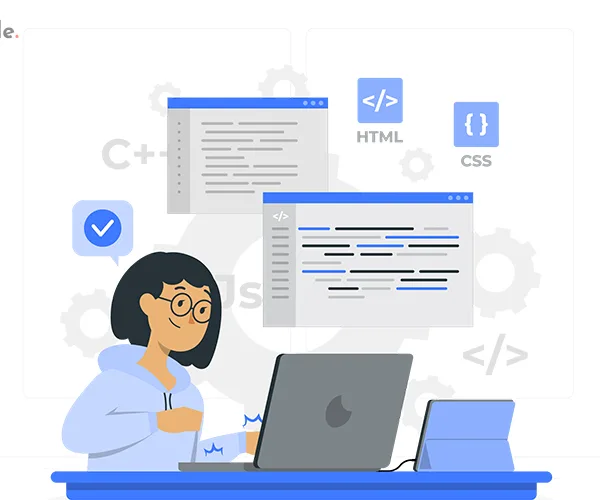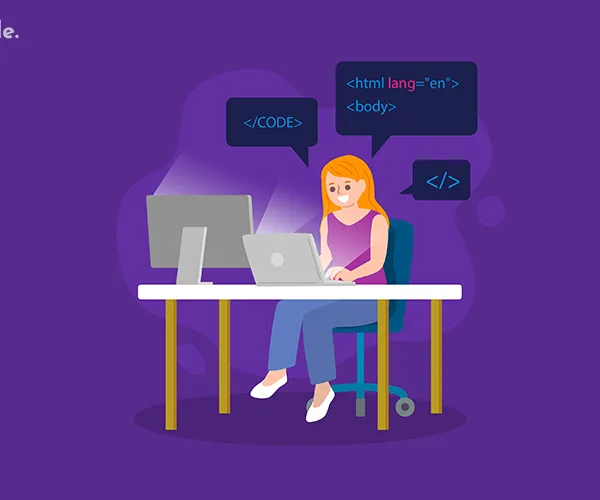Hello everyone. The following information will lead you through Java Programming Fundamentals for Beginners.
A great place to start for individuals eager to enter the world of coding is Java programming. It is the perfect option for novices because to its durability, adaptability, and broad use in several applications. In this thorough course, we’ll walk you through the essential ideas of Java programming to provide you a solid basis on which to begin your adventure into coding.
Table of Contents
Introduction to Java Programming
Java is a high-level, object-oriented programming language recognised for its “write once, run anywhere” functionality. It enables developers to design applications that can operate on several platforms without change. This makes it an excellent choice for applications spanning from web development to mobile apps and even enterprise-level solutions.
Setting Up Your Development Environment:
Before you begin coding, you must first set up your development environment. Install the Java Development Kit (JDK) as well as an Integrated Development Environment (IDE) such as Eclipse or IntelliJ IDEA. These tools help to speed up the development process by offering capabilities such as code completion and debugging.
Basic Syntax and Structure:
The syntax of Java is comparable to those of other C-based computer languages. Learn the structure of a Java program, including how to utilize classes, methods, and statements. A simple “Hello, World!” application can show you the grammar of the language.
Variables and Data Types:
Learn about variables, which are used to store data values, and explore various data types like as int, double, char, and String. Learn how to declare variables and assign them values.
Operators and Expressions:
Learn about numerous operators, such as arithmetic, comparison, and logical operators. These are necessary for your program to do calculations and make decisions.
Control Flow: Conditional Statements and Loops:
Understand how to manage the flow of your program using if statements, else statements, and switch-case structures. Learn how to use loops such as the for loop, while loop, and do-while loop to run code repeatedly.
Methods and Functions:
Methods enable you to divide your program into smaller, reusable components. Discover how to create methods, pass arguments, and return results. This modular approach organizes and improves the maintenance of your code.
Arrays and Collections:
Multiple values are stored in arrays and collections. Learn how to declare arrays, retrieve their elements, and utilize collections such as ArrayList to handle dynamic data lists.
Object-Oriented Programming (OOP) Principles:
Java is an object-oriented programming language. Discover the concepts of classes and objects, encapsulation, inheritance, and polymorphism. These ideas allow you to create complicated, modular systems.
Exception Handling:
Learn how to use try-catch blocks to handle errors and unexpected circumstances. When problems arise, proper exception handling guarantees that the program doesn’t crash.
Input and Output Streams:
Explore the fundamentals of input and output in Java. Learn how to read user input and write it to the terminal or files.
Building a Simple Java Application as a Practical Project:
Make use of your skills by creating a simple Java application. This hands-on activity will help you understand the principles you’ve learned thus far.
Tips for Effective Learning and Practice:
Mastering Java programming needs a lot of practice. Set aside regular coding time, focus on little projects, and research internet resources such as courses, forums, and code challenges.
Next Steps: Where to Go from Here:
Congratulations! You’ve mastered the principles of Java programming. From here, you may delve into more sophisticated topics like graphical user interfaces (GUIs), databases, Java web applications, and Android app development.
FAQs
1. What is the purpose of Java programming?
Java programming is utilised in a wide range of applications, including web development, mobile app development (Android), desktop apps, enterprise-level software, and many more. Its versatility and ability to “write once, run anywhere” make it a popular choice among developers.
2. Is prior coding knowledge required to learn Java programming?
No prior coding expertise is required to master Java programming. This guide is intended for beginners, beginning with the fundamentals and eventually proceeding to more complex ideas.
3. In order to write Java code, which development environment should I use?
To develop Java code, you can utilise popular Integrated Development Environments (IDEs) such as Eclipse, IntelliJ IDEA, or NetBeans. These IDEs include features that help with coding, debugging, and testing.
4. What is the relevance of Java’s “Hello, World!” program?
The “Hello, World!” program is a straightforward introduction that shows the phrase “Hello, World!” on the screen. It is frequently the first program written by a newbie in a new programming language to learn the basic syntax and structure.
5. What are Java data types and why are they important?
Data types describe the sorts of data that may be stored in a variable, such as integers, floating-point numbers, characters, and strings. They are critical because they govern how data in your application is saved and processed.
6. In Java, how can I manage the flow of my program?
To manage the execution of your program based on conditions and iterations, Java provides numerous control structures such as if statements, else statements, and loops (for, while, do-while).
7. In Java, what is the difference between a method and a function?
Methods and functions are both terms in Java that refer to chunks of code that execute a certain activity. When the code is related with a class, the word “method” is often used, but “function” is more commonly used in other programming languages.
8. What is object-oriented programming (OOP) and how does it apply to Java?
Object-oriented programming is a programming paradigm that focuses on representing real-world items as objects with properties and functions. Java is an OOP language, and OOP concepts aid in the development of modular, maintainable code.
9. How does exception handling in Java work?
In Java, exception handling entails utilizing try-catch blocks to handle mistakes and unexpected circumstances that may arise during program execution. This prevents crashes and enables for error handling in a smooth manner.
10. Can you provide me any samples of projects I may create as a novice in Java programming?
Certainly! As a novice, you can begin with projects like as a simple calculator, a to-do list app, a simple text-based game, or a temperature converter. These tasks will allow you to put what you’ve learnt into practice.
11. How can I best practice and enhance my Java programming skills?
Consistent practice is essential. Work on coding tasks, create tiny projects, and research internet resources such as coding platforms, forums, and tutorials. Furthermore, reading and changing existing code might help you improve your abilities.
12. Where can I find out more about advanced Java topics?
Once you’ve learned the foundations, you may go on to more complex topics like as GUI creation, web programming with frameworks such as Spring, and Android app development. These topics benefit greatly from online tutorials, courses, and documentation.
13. Is Java the only programming language that a newbie should learn?
While Java is a wonderful choice, other beginner-friendly programming languages such as Python and JavaScript are also available. You may want to investigate these languages as well, depending on your interests and aspirations.
14. How can I keep up with the newest Java programming developments?
Keep in touch with the programming community by using online forums, social media, and tech blogs. Stay updated by subscribing to Java-related newsletters and following influencers and professionals in the area.
15. Are there any real-world applications that demonstrate Java programming’s power?
Absolutely! Java is utilized in a variety of real-world applications, such as LinkedIn, banking systems, Android apps, e-commerce platforms, and others.
Absolutely! Java is utilized in a variety of real-world applications, such as LinkedIn, banking systems, Android apps, e-commerce platforms, and others.
Conclusion
Finally, Java programming foundations create the framework for your coding adventure. By understanding these ideas, you will be able to handle a wide range of tasks and continue to advance your coding abilities. Accept the obstacles, be intrigued, and keep coding!



